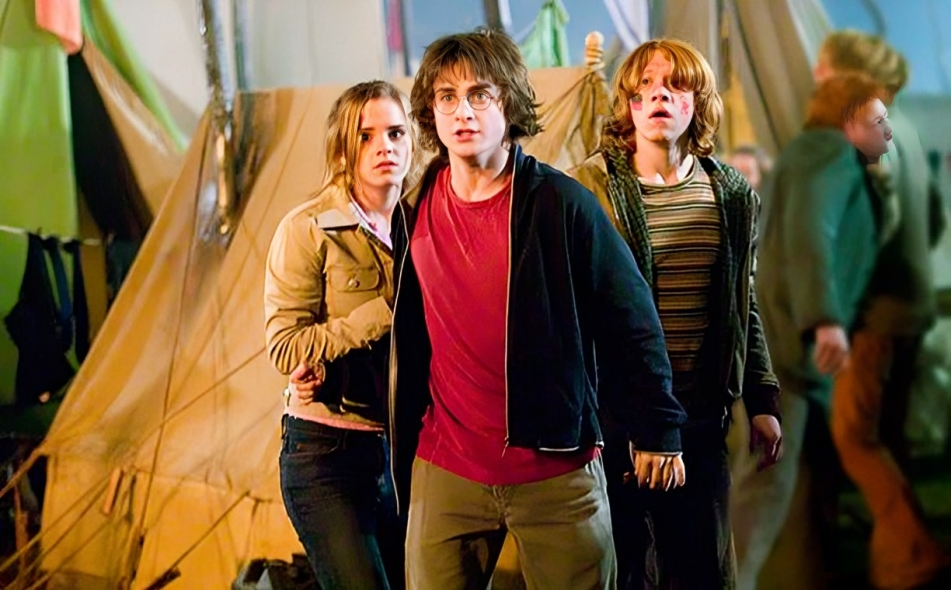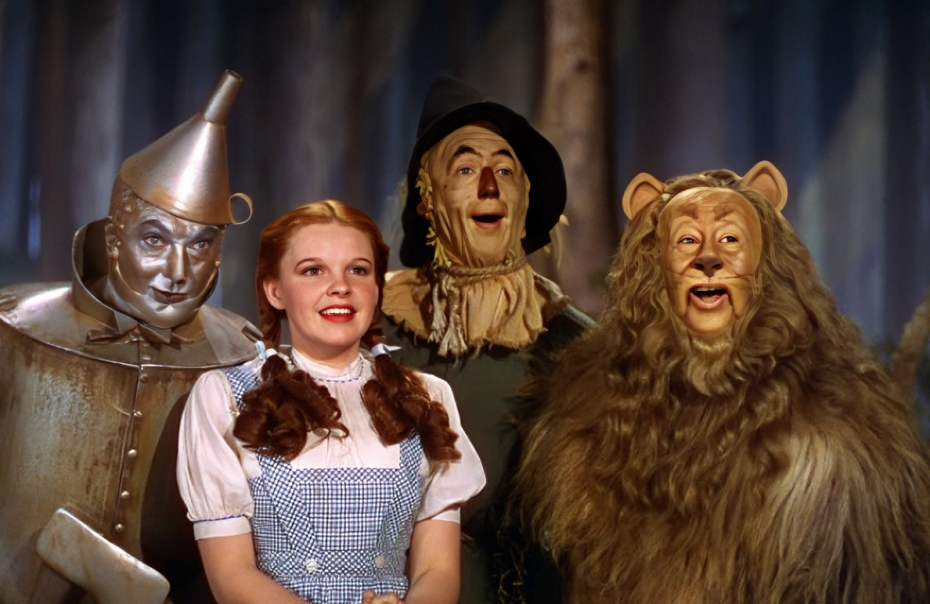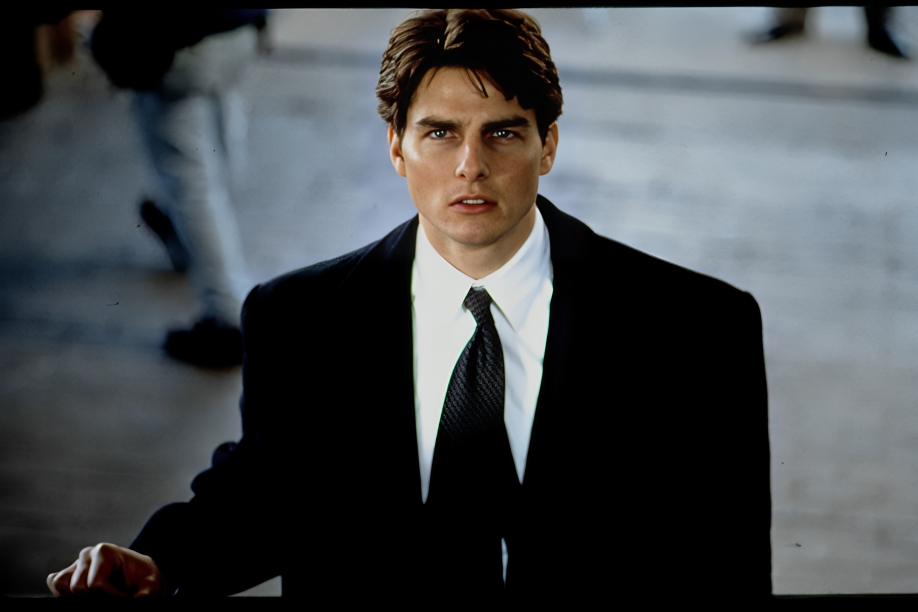Gripping story-telling in ‘The Wizard of Oz’ and an ominous soundtrack in ‘The Firm’ tick all the right boxes.
SLOUGH, ENGLAND:
As all book lovers will be aware – and I consider myself one of the leading figures of this esteemed pack – the news that a novel is now in the hands of an overenthusiastic director is rarely a cause for celebration.
Repeated betrayals in the history of television and cinema have burned too many readers, as a generation of horrified Eragon and Percy Jackson fans can testify. There is not enough space on the internet for these two fandoms to fully express their views on this traumatic subject, so they can occasionally be found haunting Reddit with the words “They are so unfaithful to the books it makes me want to cry” or “I just have so much hatred for this movie.”
In a half-hearted defence of directors and producers, the deck is already stacked against them when they embark on a foolhardy quest to convert a book into a film. If you have 400 pages of text comprising witty prose and sardonic observations in the narrative, you are not going to be able to condense it into a two-hour movie without losing the magic (and thereby (successfully) planting hatred in the hearts of sensitive readers.)
The easy way out: a long film
Just like white lions and crop circles exist, there are filmmakers in the wild who have astonished us all by spitting out a film that far outdazzles the source material. You would think that such wizardry is a recent phenomenon, a development only possible now that streaming has given birth to the limited series format. You would be wrong – although I do concede that having the luxury of run time that a limited series allows means that directors no longer have to obliterate crucial plot points using a blindfold and a dartboard (which is the most logical explanation for the cruel fate suffered by the Harry Potter films Goblet of Fire onwards).

A limited series, however, is not the only route to achieving the coveted (albeit almost impossible) ‘better than the book’ status. All you really need is a very long film – a trend that is creeping back, much to Hugh Grant’s consternation. At this year’s Oscars, Hugh complained that films are getting far longer than necessary, and viewers tend to agree (the difficulty of timing bathroom breaks after ingesting bucket-loads of overpriced cinema-bought drinks appears to be a factor here.) However, long films have merit if they make sense and have a point to prove, as the Dune series and Lord of the Rings movies have repeatedly shown us.

Long before Dune and Lord of the Rings turned up, however, the first long-movie jewel with a point to prove burst into existence in 1939 when director Victor Fleming took it upon himself to turn L. Frank Baum’s incomprehensible The Wizard of Oz into a classic that is revered to this day.

The Wizard of Oz (the book) is as legible as anything JRR Tolkien ever wrote – which is another way of saying that it is as easy to decipher as Ancient Egyptian hieroglyphics. However, in film form, The Wizard of Oz is a master class in story-telling. It is the film that book editors prop up as an example when kindly explaining to frazzled debut authors how to chart a plot. It is the film that gave us a Dorothy to remember, a Scarecrow to love, and a cackling green-faced Wicked Witch against which all other witches are based. Without it, the Broadway show Wicked may never have been born. Ariana Grande would have never fulfilled her dream of playing Glinda in all her pink glory. (Although whether this last point is as big a potential travesty as Ariana would believe it to be is not something we are likely to find out until the December release of the Wicked film.) The obvious deduction? If attempting to make the treacherous leap from book to screen, it helps if the source material is inescapably dull so that no one cares if you change things.
A book with a bad ending
It also helps if you have a book with a terrible ending. This is the moment we must usher in that favourite of the thelay wala and Urdu bazaar: the universally adored bestseller Jodi Picoult and her tearjerker My Sister’s Keeper. My Sister’s Keeper charts the plot of a cancer-ridden teenager and her healthy sister. The healthy one’s various body parts are used (medically) to keep the sick sister alive – until she (the healthy sister) sues the parents for unfair use of her body. You know there is going to be a death in here somewhere, and you keep your tissues nearby. So far so good – until the book reaches its baffling, tortuous conclusion, where the healthy sister dies in a mindless car crash on the way to court, and her organs are used to heal the cancer-ridden sister, who regains full health and lives happily ever after.

My Sister’s Keeper is the novel that taught me that books are resilient things and can survive being thrown across a room in a blind rage. The film starring Camerion Diaz, thankfully, eliminated needless car crashes and fixed things so that the correct sister dies. The novel came out 20 years ago, but the memory of the pain still haunts those of us who witnessed its insufferable ending until the 2009 film of the same name rectified its horrific ending.

And finally, in the same vein, John Grisham really took to heart the advice ‘write what you know’ and, as a former lawyer, did his part to educate so many non-lawyer millennials about the American legal system via his many novels. The Firm was a legal thriller that snagged many hearts, but it was the 1993 Tom Cruise film that ultimately won us over – not so much because of his pretty face and penchant for leaping off buildings, but almost entirely down to an ominous left-hand piano soundtrack that radiated waves of impending terror stomach-churning ‘what next’ at what was to unfold. Where the book has a horrifying ending, with Mitch the protagonist living on the run forever with his wife, the film provided a much more satisfying journey. For example, in a bout of self-preservation, Book Mitch fails to mention to his beloved wife the one-night stand he was roped into partaking in thanks to his devious employers. Film Mitch, by contrast, is able to nail his scheming employers for over-billing, and also confesses to the wife about the one-night stand. All is forgiven. There is no need for anyone to live on the run. Happy days.
Have something to add to the story? Share it in the comments below.


